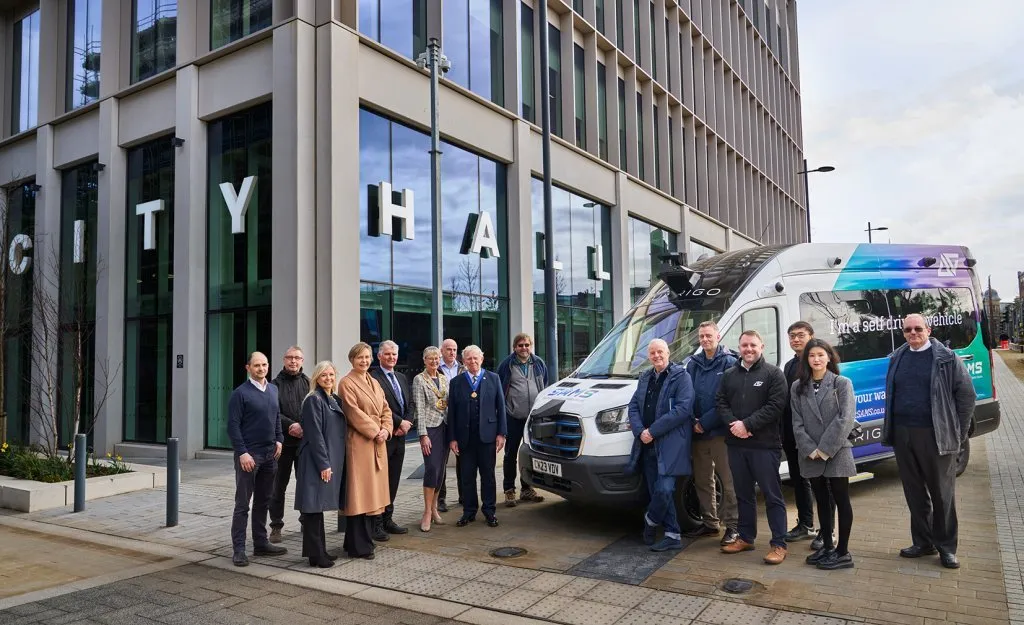
The UK city of Sunderland is to introduce three driverless shuttles on public roads in spring this year.
Sunderland Advanced Mobility Shuttle (Sams) is one of six successful CAM Deployment UK projects from the Centre for Connected and Autonomous Vehicles (CCAV) Deployment competition.
It has been awarded £3m by the government, matched by industry to a total of £6m, as part of the CCAV’s Connected and Automated Mobility programme which is supported by Innovate UK and Zenzic.
Sunderland City Council's initiative is in partnership with Aurrigo, Stagecoach, Angoka, Newcastle University, Swansea University and Boldyn Networks.
Designed by Aurrigo, the zero-emission vehicles will run with an attendant on board, transporting passengers between Sunderland Interchange, the University of Sunderland City Campus and the Sunderland Royal Hospital.
One aim of the project is to develop and demonstrate a cyber secure remote supervision protocol - an important step towards commercial deployment.
The shuttle will run along an intelligent transport corridor, enabled by 5G small cells which are being installed by Boldyn Networks.
Training of on-board attendants begins in April, while preparations to map the shuttles' routes are also underway.
Patrick Melia, chief executive at Sunderland City Council, says the city is heading "towards a more connected and sustainable future".
Richard Fairchild, chief operations officer at Aurrigo, says Sunderland "is poised to emerge as a trailblazer in the realm of self-driving transportation, setting a precedent for other cities to follow in the quest for smarter, more efficient mobility solutions".









